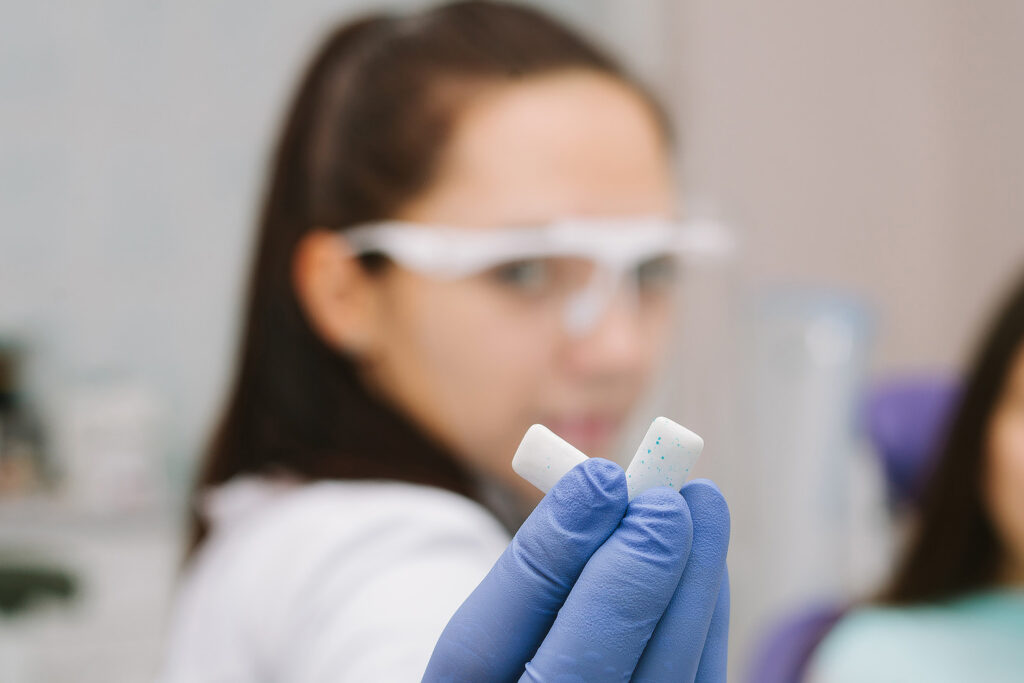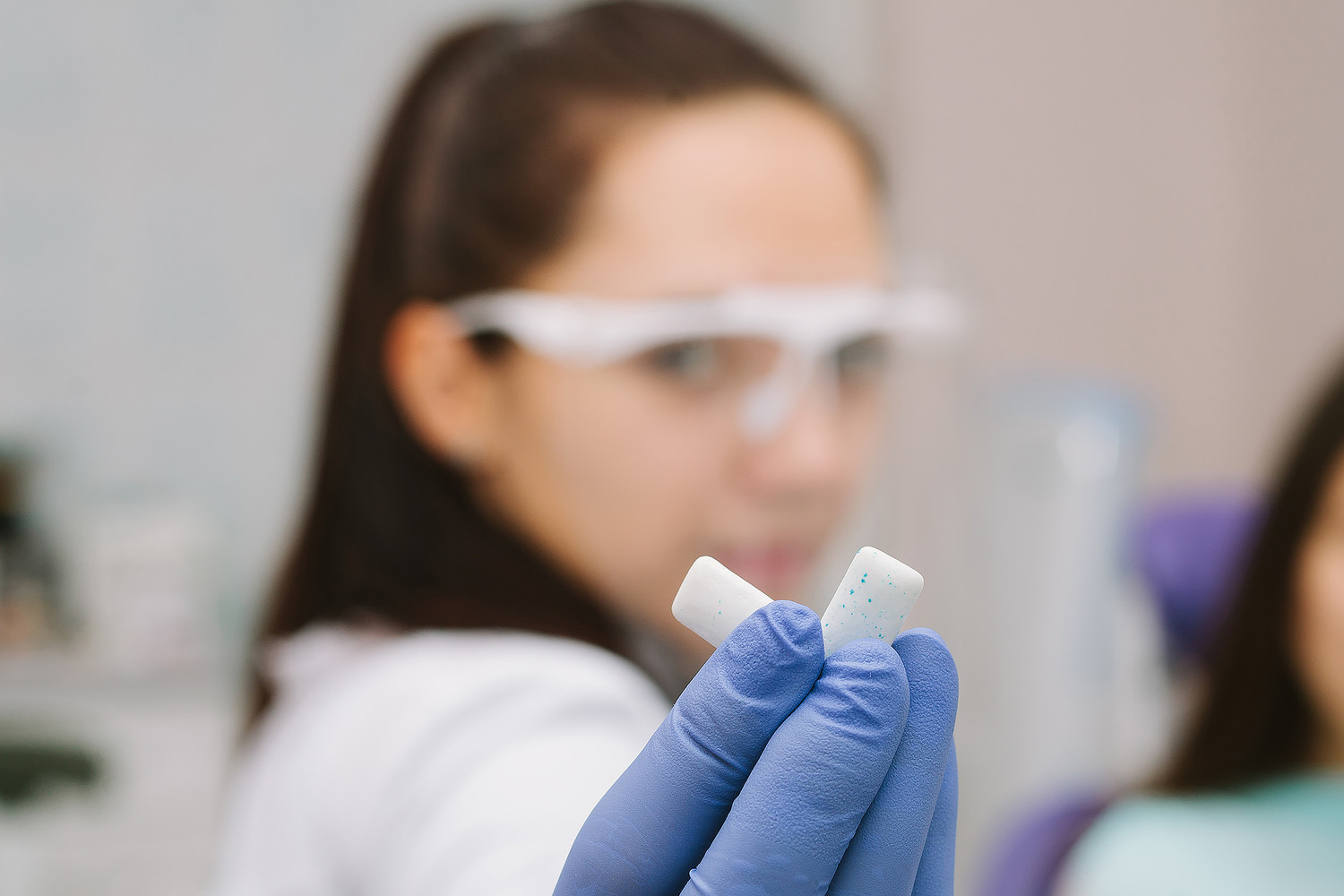
Scientists have created gum that protects against COVID-19.
Anti-covid gum catches the virus right in your mouse
COVID-19 gum that binds the virus directly in the mouth was developed by scientists from the United States. The chewing gum contains ACE2 receptors that help trap SARS-CoV-2 virions and prevent them from penetrating oral tissues. This helps reduce the viral load in saliva and could be a good aid to vaccination, the developers hope. The anti-covid gum does not taste different from regular gum and can be stored in the same conditions – it will not affect the performance of ACE2.
The SARS-CoV-2 coronavirus is transmitted by airborne droplets, mostly through particles emitted by breathing and talking, and is usually detected in large quantities in saliva. Researchers at the University of Pennsylvania suggested that it might be possible to reduce viral load and risks of infection by binding virions in the mouth.
Earlier developments included sprays to reduce the number of viral particles in the respiratory tract. However, there is active viral replication in the salivary glands, and it is better to interact with them directly.
There are antimicrobial mouthwash fluids, but oral contact with them is too brief. In their search for something that could stay in the mouth longer and provide protection, researchers turned their attention to gum.
To create anti-cavity gum, the scientists grew a batch of modified lettuce that contained a large number of ACE2 receptors that SARS-CoV-2 binds to.
They used this plant material to make chewing gum. The technology was slightly different from the classic one-the scientists worked at lower temperatures to keep ACE2 from breaking down, and they used pressing instead of extrusion and twisting. They also made placebo gum. Both products tasted and physically did not differ much from ordinary chewing gum. The scientists described the results of their experiments in an article in the journal Molecular Therapy.
The researchers used saliva from healthy people and those infected with COVID-19 to test the effectiveness. It turned out that the viral particles do bind to ACE2 in the gum and their concentration in saliva decreases dramatically. In samples for which placebo gum was used, the viral load also decreased slightly, which is consistent with earlier research – commercial chewing gums contain substances that can bind to viruses. This has no clinically significant effect, however.
Saliva is an important factor in infection transmission
Having bind to ACE2 receptors in anti-covid gum, viral particles will no longer be able to “peel off” from them and penetrate oral cells, explain the authors of the work.
“Saliva plays an important role in infection transmission among critically ill patients and interacts with oral tissues,” the researchers write. – Reducing the viral load in saliva should limit the risk of transmission from a potential carrier and will help reduce the severity of the course of COVID-19 by minimizing reinfection, since the salivary glands are a major site of viral replication.”
Antiviral gum can be stored under the same conditions as conventional gum. No similar biological “traps” approved by regulatory agencies exist yet, making the development unique in its kind, the scientists emphasize.
Masks and other precautions protect others from infection, but cannot protect against reinfection of the patient himself, the researchers point out. Gum, by reducing the viral load, reduces the risk that new viral particles will infect the body’s cells again, causing a new episode of COVID-19.
“In addition to preventive protection against COVID-19 in public places or restaurants, chewing gum with ACE2 can be used as a quick remedy to reduce the viral load of SARS-CoV-2 in the mouths of infected patients who require dental procedures. This general concept can be expanded to minimize infection or transmission of most viruses in the mouth,” they add.
Salivary glands are sites of replication for many other viruses, including herpes simplex virus, cytomegalovirus, hepatitis C, Epstein-Barr virus and Zika virus.
The development of similar anti-covid gums may be able to curb the virus spread, too, the scientists believe.
The necessary effect can be achieved even for seasonal strains of influenza virus – earlier observations have shown that plant lectids (glycoproteins that bind carbohydrate residues on cell surfaces) can neutralize virions of its different strains.
While the most effective measures against SARS-CoV-2 and other respiratory viruses today remain vaccination, wearing masks, keeping a distance, and washing hands, antiviral gum can be an effective aid, including in reducing the risk of reinfection, the researchers conclude.





